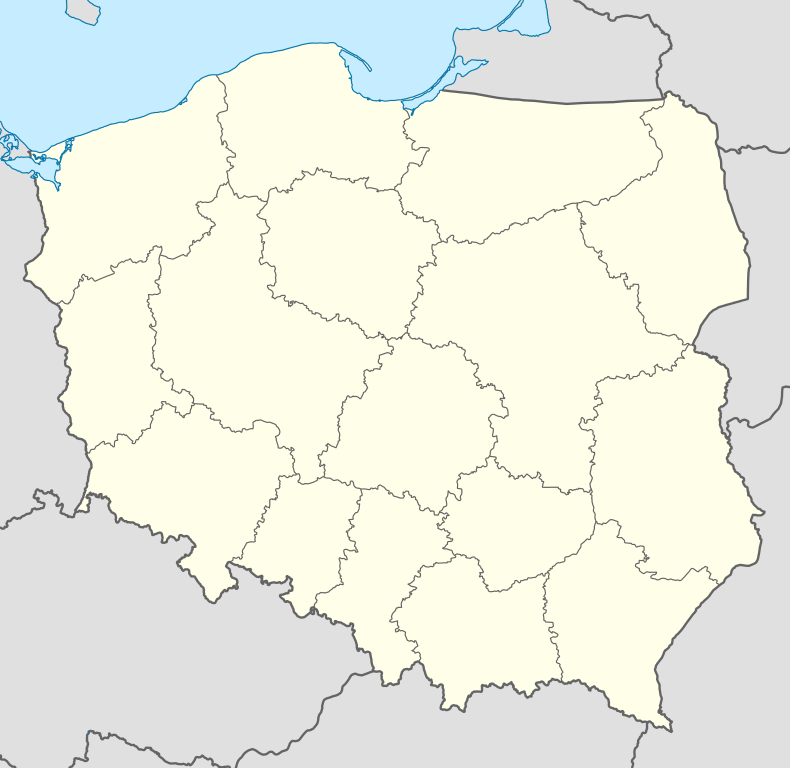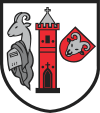Nowogrodziec
| Nowogrodziec | |||
|---|---|---|---|
| |||
 Nowogrodziec | |||
| Coordinates: 51°12′4″N 15°23′8″E / 51.20111°N 15.38556°E | |||
| Country |
| ||
| Voivodeship | Lower Silesian | ||
| County | Bolesławiec | ||
| Gmina | Nowogrodziec | ||
| Government | |||
| • Mayor | Robert Marek Relich | ||
| Area | |||
| • Total | 16.17 km2 (6.24 sq mi) | ||
| Population (2008) | |||
| • Total | 4,027 | ||
| • Density | 250/km2 (650/sq mi) | ||
| Time zone | CET (UTC+1) | ||
| • Summer (DST) | CEST (UTC+2) | ||
| Postal code | 59-730 | ||
| Car plates | DBL | ||
| Website | http://www.nowogrodziec.pl | ||
Nowogrodziec [nɔvɔˈɡrɔd͡ʑet͡s] (German: Naumburg am Queis) is a town in Bolesławiec County, Lower Silesian Voivodeship, in south-western Poland. It is the seat of the administrative district called Gmina Nowogrodziec. It lies on the east bank of the Kwisa river south of the Lower Silesian Wilderness, approximately 15 kilometres (9 mi) south-west of Bolesławiec, and 116 kilometres (72 mi) west of the regional capital Wrocław.
According to official figures for 2008, the town has a population of 4,027.
History
The Silesian duke Henry I the Bearded established the town in 1233 and granted it Magdeburg rights. It later belonged to the Piast duchies of Legnica, Głogów and Jawor. Here the important Via Regia road crossed the Kwisa, that marked the border with the historic Upper Lusatia region in the west. Like nearby Bolesławiec, the town was once famous for its pottery.
Heavily devastated the town passed to the Republic of Poland upon the implementation of the Oder-Neisse line in 1945. The native German populace was expelled and replaced with Poles. From 1975 to 1998 Nowogrodziec was in Jelenia Góra Voivodeship.
International relations
Twin towns — Sister cities
Nowogrodziec is twinned with:
-
 Salzgitter in Germany
Salzgitter in Germany -
 Friedensdorf in Germany
Friedensdorf in Germany -
 Großdubrau in Germany
Großdubrau in Germany
| ||||||||||||
Coordinates: 51°12′N 15°24′E / 51.200°N 15.400°E

